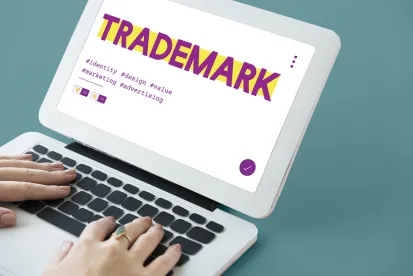In a decision examining the extent of copyright protection provided to certain data compilations, the US Court of Appeals for the Ninth Circuit affirmed a summary judgment in favor of the defendant on copyright infringement claims raised by plaintiff, but reversed summary judgment on a state law trade secret claim, finding triable issues of fact. Experian Information Solutions, Inc. v. Nationwide Marketing Services Incorporated, Case No. 16-16987 (9th Cir. June 27, 2018) (Schroeder, J).
Experian compiles databases of information and licenses certain segments or collections of its data to other companies for use in their marketing campaigns. Experian’s ConsumerView Database (CVD) has been compiled by the company since 1998, and Experian owns a copyright registration covering the “selection, coordination, arrangement, and compilation of data” in the CVD. Based on the 250 million records of consumer data making up the CVD, Experian has found that specific pairings of names and addresses are one of the most lucrative components of the CVD when licensed to mail marketers.
In 2012, Nationwide, a small competitor in the database compiling industry, attempted to sell to Experian a compilation that Nationwide had acquired consisting of children’s birthdays combined with the name and addresses pairings of the children’s parents. When Experian compared the data to its own, it found that Nationwide’s data was identical to Experian’s at a match rate of 94 percent to 97 percent. This led Experian to conclude that the data had been stolen from it, and Experian filed a lawsuit against Nationwide for copyright infringement and trade secret misappropriation in Arizona district court.
The district court granted summary judgment in favor of Nationwide, concluding that Experian did not have a valid copyright or trade secret in the name and address pairing compilation. Specifically, the district court determined that the data compilation lacked sufficient creativity or originality to be eligible for copyright protection, and that the data pairings did not constitute a trade secret. Experian appealed.
First looking at the claim of copyright infringement, the Ninth Circuit set forth the boundaries of protection, noting that compilations of data fall somewhere in between facts, which are not copyrightable, and original works, which are. The Copyright Act recognizes that collections or compilations of facts may rise to the level of originality required for copyright protection. However, such copyright protection does not pertain to the data or facts themselves, but to the selection and arrangement of such facts made independently and with a minimal degree of creativity. Citing the Supreme Court of the United States’ 1991 decision in Feist, the Ninth Circuit noted that mere replication of alphabetical data in a telephone book was found to fall below the creative limit for copyright in a data compilation. The Court then looked at key circuit decisions that followed Feist to examine where courts have found sufficient creativity in the selection and arrangement of data compilations.
Based on its survey of the various circuit decisions, the Ninth Circuit distilled three general principles:
- Factual compilations are entitled to copyright protection so long as there is creativity in the selection, arrangement or coordination of the facts.
- The requisite creativity need only be minimal.
- The scope of protection in compilations is limited to the selection and arrangement, not to the underlying facts.
Applying these principles, the Court found that Experian’s name and address pairings were entitled to limited copyright protection because of Experian’s process in selecting, testing and culling accurate data pairs and then selecting which data to actually include in the database compilation for actionable, high-value results.
After deciding that Experian owned a valid copyright in the CVD, the Ninth Circuit agreed with the district court that Experian could not establish that Nationwide copied any protected material so as to constitute infringement. Because facts themselves can be copied, the Court explained that when dealing with a “thin” copyright in a compilation, the plaintiff must show “bodily appropriation” or virtually identical copying of the entire work. Since Experian had not introduced into evidence the version of its database that it claimed was copied, it had not established the necessary “bodily appropriation of expression” of the work by Nationwide.
The Ninth Circuit reversed the district court on the trade secret claim, however, finding triable issues as to whether the CVD had economic value as a trade secret that is not readily discernible to its competitors. Also, although Experian demonstrated that it maintained the secrecy of the CVD, thus making a prima facie showing that the collection qualified as a trade secret, the Court determined there were questions of fact as to whether Nationwide knew it was acquiring a trade secret through improper means when it purchased the original birthday data.




 />i
/>i
